Taruwakien’s Vision of an Organic Tea Factory in the Sky【Kawane Tea, Shizuoka Prefecture】
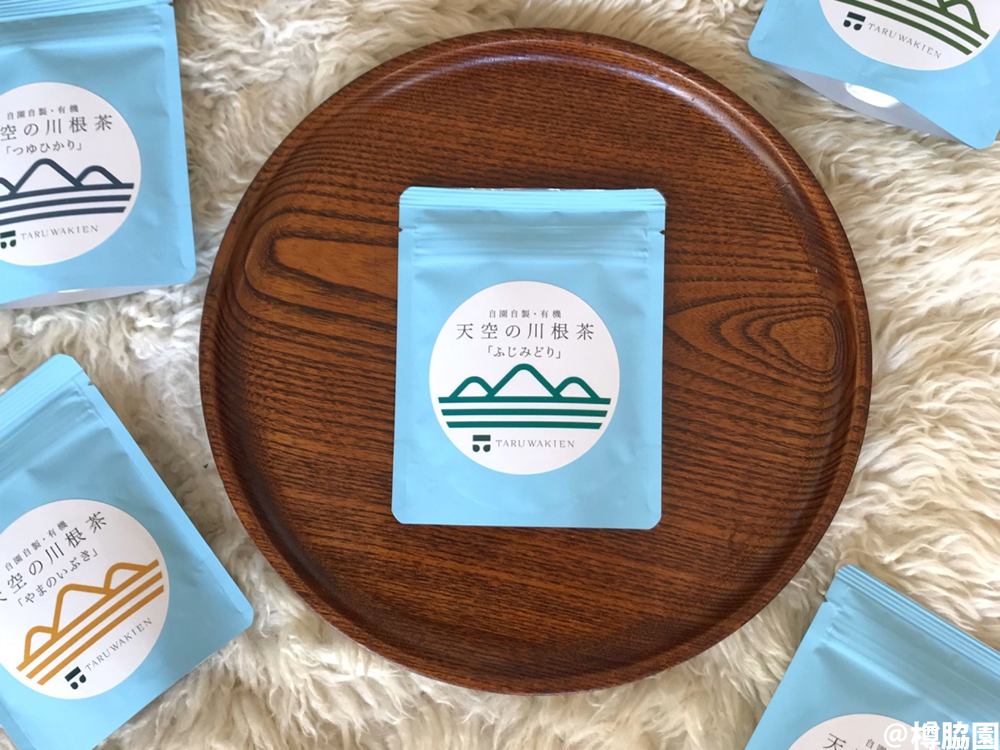
In the central basin of the Oigawa River, which originates from Mt. Ainodake in the Minami Alps and runs north to south through the center of Shizuoka Prefecture. Tea produced in the Kawanehoncho and Kawanecho Shimadacity areas is called “Kawane-cha”(Kawane tea) and is characterized by its clear water color and mellow aroma. The tea farm we visited this time is called Taruwakien. Engaged in organic tea cultivation at an altitude of 630 meters above sea level in the Kawanehoncho area, Taruwakien has been growing this rare kawanecha, which accounts for less than a few percent of the total tea production in Japan, organically for about 30 years. In addition to producing and selling its own tea, Taruwakien is also actively involved in publicizing locally grown tea through tea-picking experiences and tea ceremony events.
In this article, we report on this delicious organic tea grown at an altitude of 630 meters above sea level, how Taruwakien markets its tea, philosophy of farming in harmony with nature, including an interview with the farm’s owner, Yasuaki Taruwaki.
Contents
- 1 About Taruwakien
- 2 Interview: Taruwakien’s Vision: An Organic Tea Factory in the Sky Creating New Value for Tea
- 2.1 An organic tea garden 630m high in the sky operating in harmony with surrounding rich natural environment.
- 2.2 Giving organic tea grown in mountainous regions a fair evaluation
- 2.3 Why do people drink tea? The question I ask when designing new products
- 2.4 Communicating our value and products through events with our fans
- 3 information of taruwakien
About Taruwakien
Taruwakien is a tea farm in Shimonagao, Kawanehoncho, Shizuoka that handles everything from organic farming to tea production and sales. The current representative is Mr. Yasuaki Taruwaki. Taruwakien’s tea fields are located in a mountainous area at an altitude of 630 meters above sea level, and is lovingly labelled as the “Land of the Sky.”
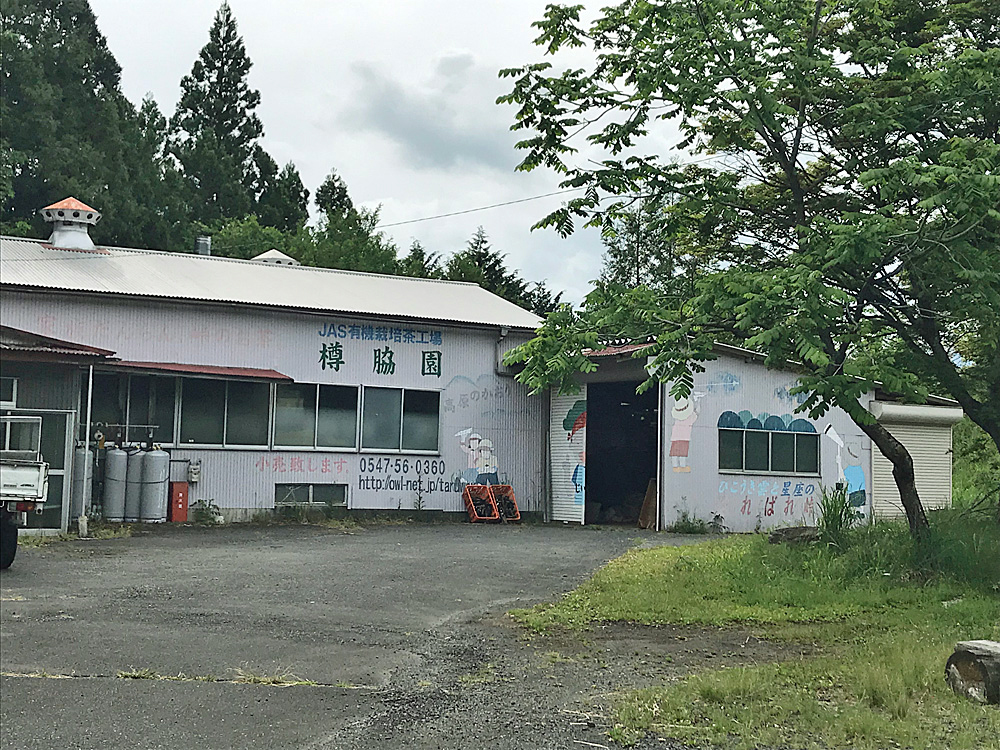
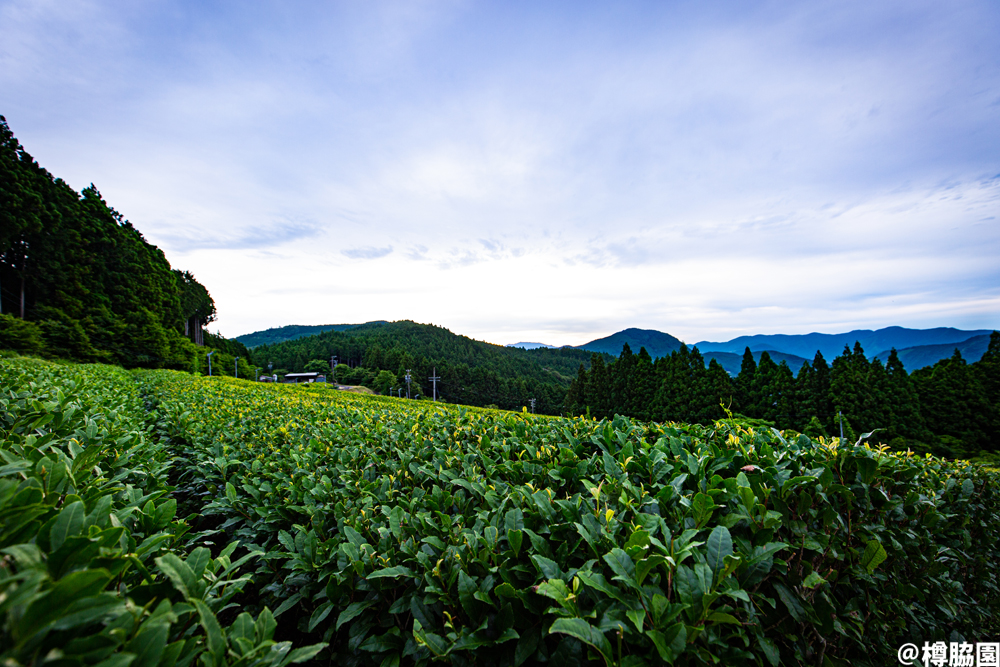 ▲Taruwakien’s tea farm is located at about the same height as the Tokyo Skytree. Here, tea leaves are grown in a beautifully wild and natural environment.
▲Taruwakien’s tea farm is located at about the same height as the Tokyo Skytree. Here, tea leaves are grown in a beautifully wild and natural environment.
An Introduction to Tea of Taruwakien
Taruwakien turned to organic tea cultivation out of a realization that tea cultivation had become so heavily dependent on chemical fertilizers due to the emphasis on replicating a certain umami flavor. In order to return to the original natural way of tea cultivation, they stopped using pesticides and chemical fertilizers and decided to start again from soil cultivation using homemade organic fertilizers.
More than 30 years later, Taruwakien’s organically grown Kawane tea is now delivered directly from farm to consumers.
The tea leaves grown at high altitude and cool climate of the mountains in Kawane have comparatively thin flesh and are steamed in a short period of time, resulting in a shallow steamed tea (asamushicha.) The tea leaves are characterized by their beautiful needle-like thin shape, clear water color, and elegant taste. Brewing at a low temperature allows you to enjoy the aroma even more.
Here we will introduce Tea of Taruwakien.
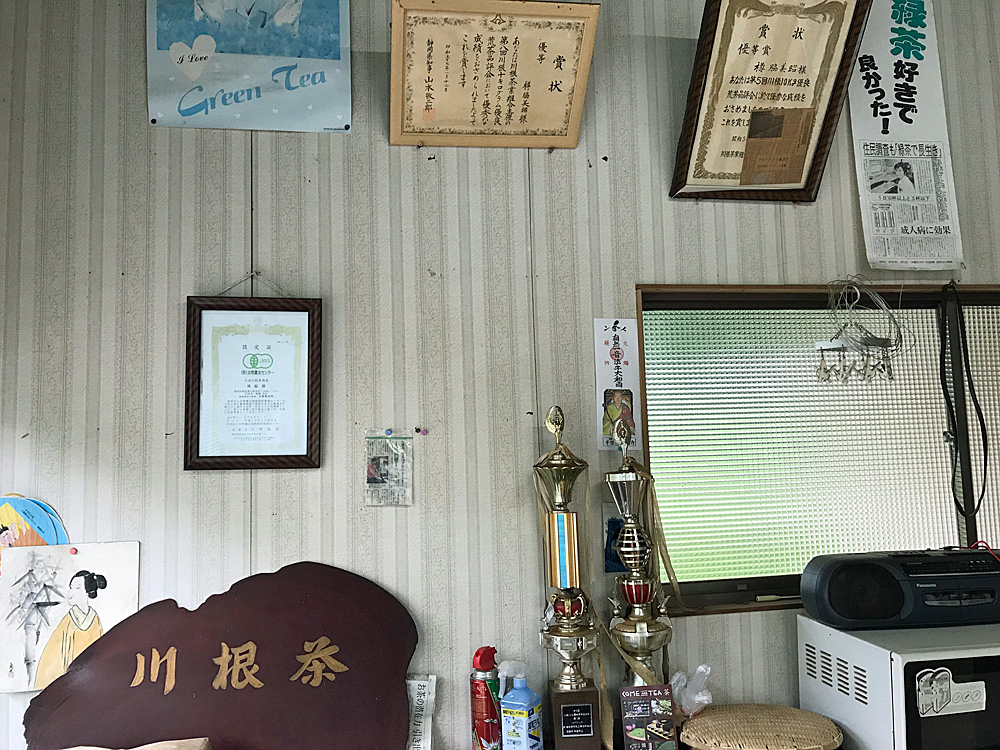
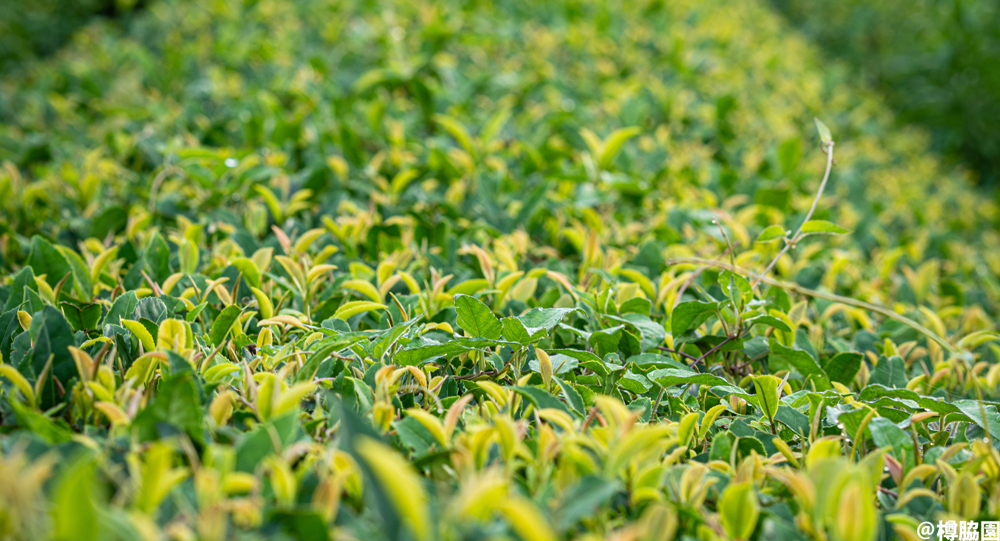
Kaori
Kaori is one of Taruwakien’s proudly recommended sencha teas. It is made from newly blossomed tea leaves harvested during early Spring and is characterized by its gorgeous aroma. It is recommended for versed tea lovers as well as novice tea drinkers.
If you are unsure which tea to choose, why not start by trying Kaori?
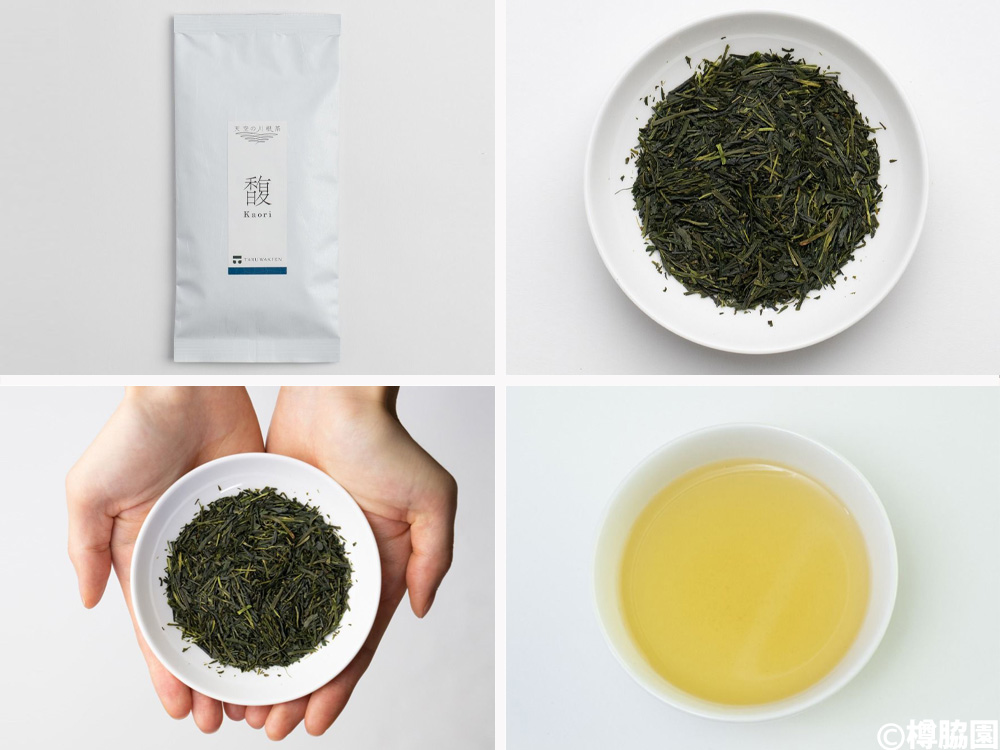
Black tea
Taruwakien’s black tea is refrigerated for one year, which gives it a mellow, well-rounded flavor. Its low astringency and soft taste go well with Japanese sweets and kaiseki cuisine.
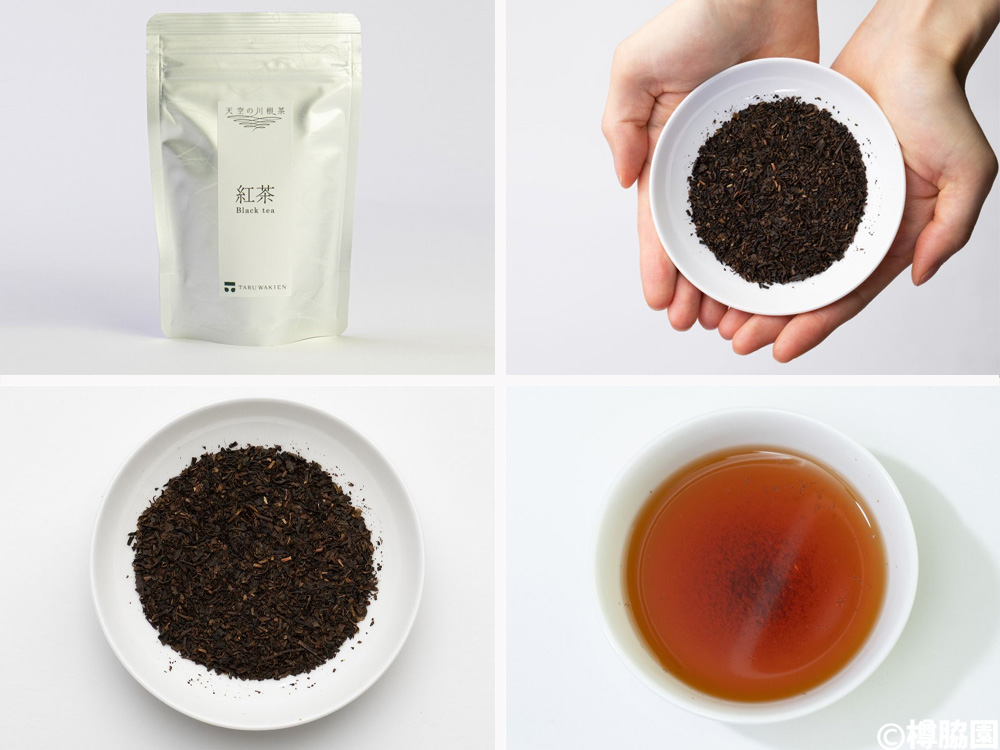
Hojicha
This hojicha has an aromatic flavor. One of the attractions of hojicha is its low caffeine content. Usually, the first season of tea has the highest content, followed by the second and third.
Taruwakien’s hojicha is made from sanbancha, the third tea harvest of the year, in autumn, and has low caffeine content, making it safe for pregnant women and children.
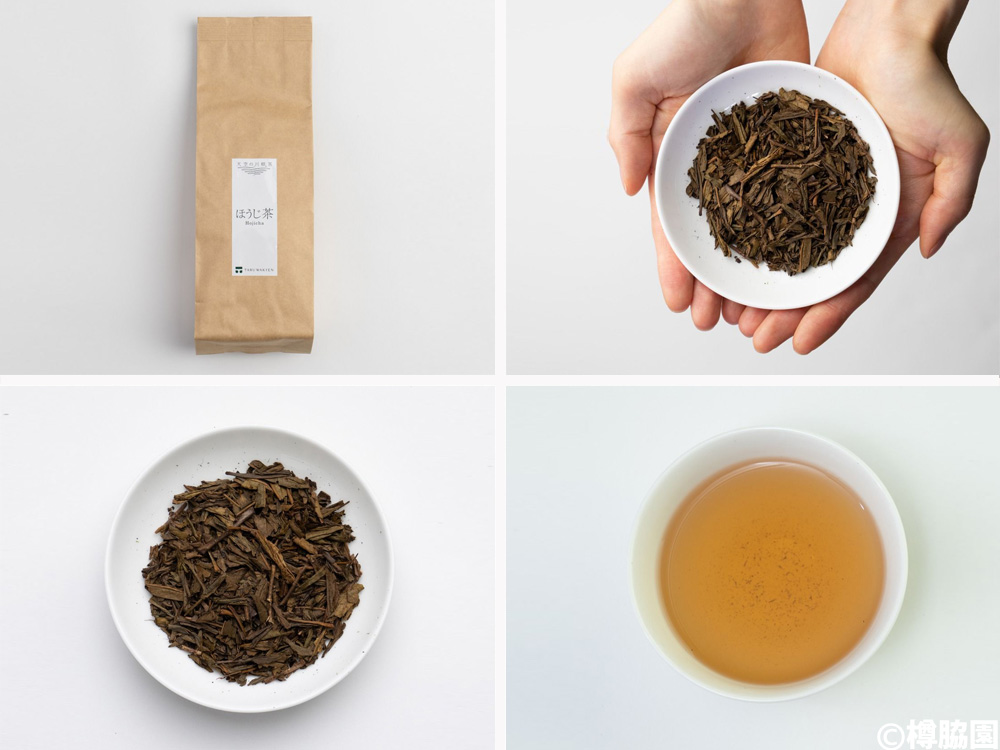
5 types of Single Origin teas
Tea is an agricultural product, and single origin (tea made from leaves from a specific region or variety) products never taste the same from year to year.
Taruwakien offers five single-origin varieties of tea for visitors to enjoy the changing flavors of tea from year to year. As of 2023, the five varieties of tea offered are: Yabukita, Yamanoibuki, Tsuyu-hikari, Fujimidori, and Okumidori.
All of these varietal teas are made from tea leaves grown by Taruwakien, and each has its own distinctive taste and aroma.
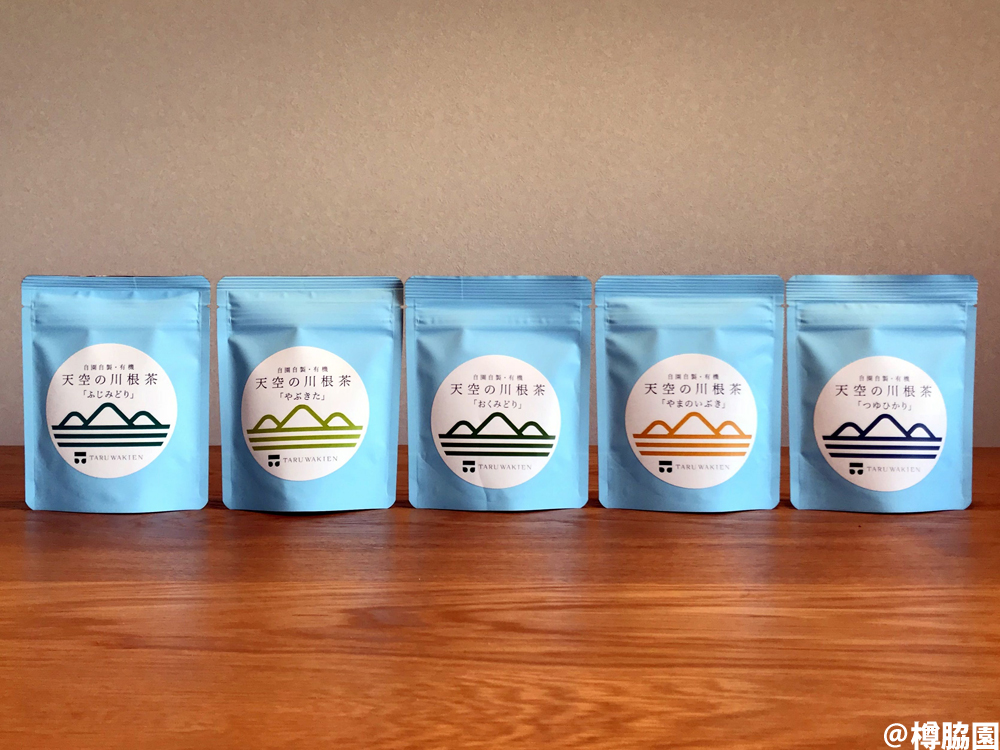
New moon tea and full moon tea
New moon tea and full moon tea are harvested according to the phases of the moon, each with its own unique taste and aroma. The phases of the moon are known to be closely related to the earth’s water, like with the tides of the sea, and are believed to affect the growth of crops.
New moon tea is made from tea leaves harvested during the seven days before the new moon. The tea is characterized by its light, refreshing and easy to drink flavour.
Full moon tea, on the other hand, is made from tea harvested during the seven days before the full moon. It has a mellow aroma and deep flavor, and is considered to be a luxury product.

More than just tea! Taruwakien’s essential oil brand Kagya Japan.
In Kawanehoncho, the climate is ideal for growing high-quality tea along with yuzu, a fragrant citrus fruit common in Japanese cuisine. Taruwakien is also engaged in organic cultivation of yuzu, and has developed an essential oil from the harvested yuzu.

We launched our own essential oil brand Kagya Japan and currently offer three types of essential oils.
・YUZU – a refreshing aroma unique to yuzu citrus
・HINOKI, a crisp fragrance reminiscent of a forest walk
・SUGI – a profound cedarwood fragrance
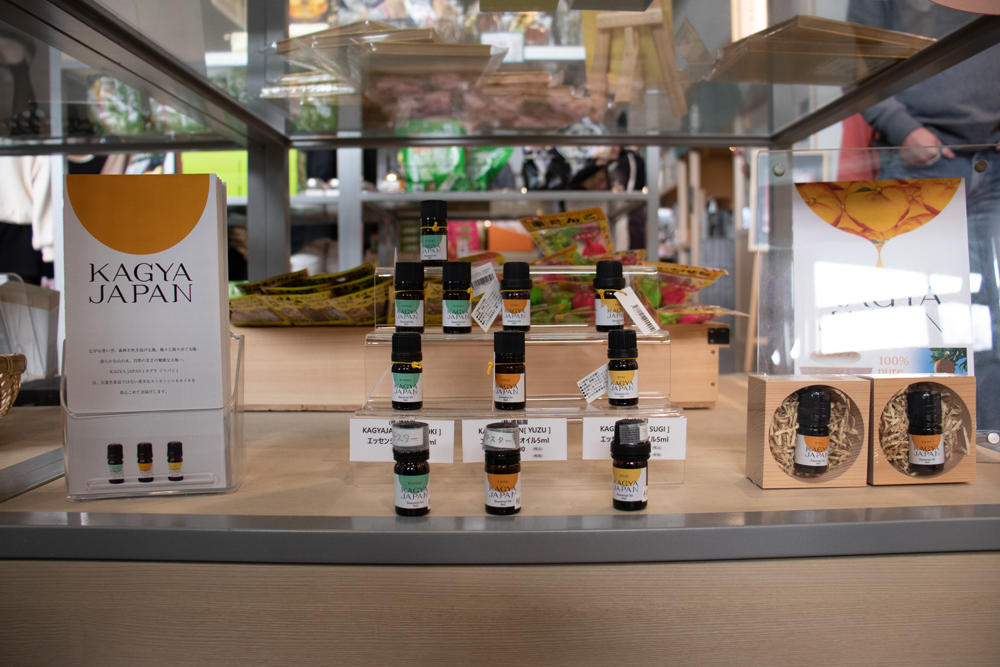 ▲Kagya Japan, an essential oil brand newly launched by Taruwakien. From left, “HINOKI”, “YUZU”, and “SUGI”, extracted by a special technique called steam distillation.
▲Kagya Japan, an essential oil brand newly launched by Taruwakien. From left, “HINOKI”, “YUZU”, and “SUGI”, extracted by a special technique called steam distillation.
The stylish wooden containers used as packaging materials can be reused as diffusers as they are. Environmentally friendly hinoki cypress is used as a material, reflecting Taruwakien’s commitment to making products that are friendly to nature.

 ▲The company also sells a tea called ORGANIC KAGYA BLEND, a blend of organic yuzu and organic black tea.
▲The company also sells a tea called ORGANIC KAGYA BLEND, a blend of organic yuzu and organic black tea.
Interview: Taruwakien’s Vision: An Organic Tea Factory in the Sky Creating New Value for Tea
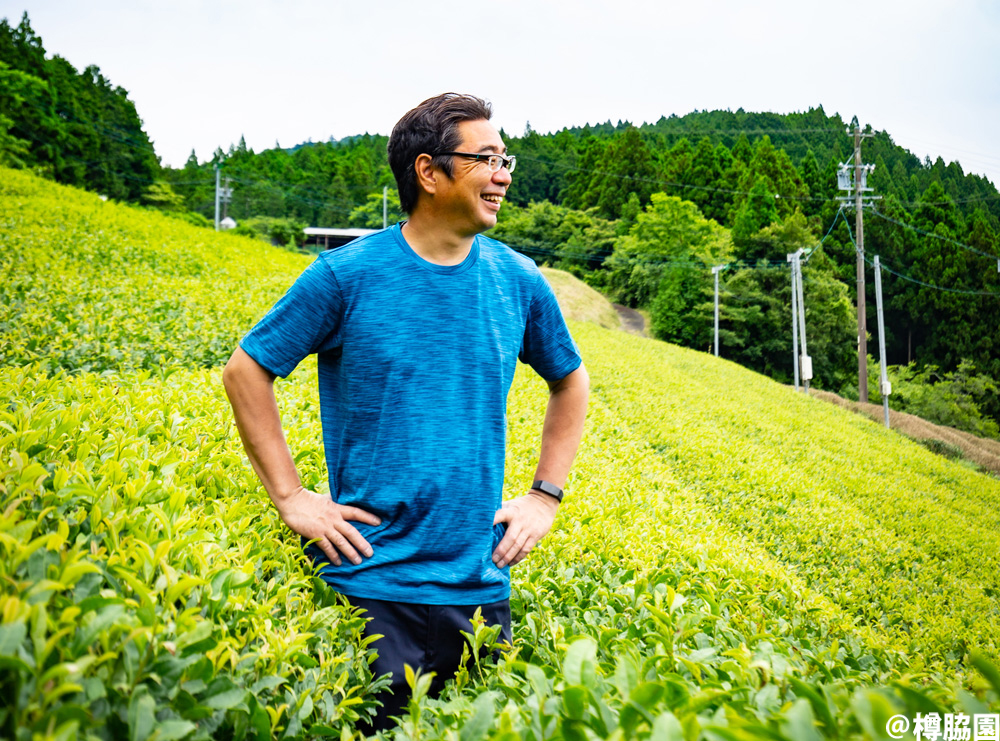
We interviewed the representative, Yasuaki Taruwaki. (Taruwakien is located in a mountainous area with a steep slope, and as you can see from the photos, walking around the site was strenuous on my legs and back. As one can imagine, growing tea here must be quite the physical endeavour.)
An organic tea garden 630m high in the sky operating in harmony with surrounding rich natural environment.
–So, this is your tea farm in the sky at 630 meters above sea level. It’s a pleasurable place to be, surrounded by such beautiful nature.
We are here making tea at pretty much the same height as the Tokyo Skytree (laughs). I really love this place with its abundance of lush nature.
–It was something of a mission just getting here! Have you been living here your whole life?
At the moment I live in Shizuoka city and commute here for work. I was born and raised here in Kawane until I went to high school. I went to a university outside of the prefecture, got a license as a car mechanic and moved to Shizuoka city where I worked at a car dealer.
It was when my mother died that I came back to help out making tea here. 3 years ago my father became ill and so now I pretty much do all the farm work by myself.
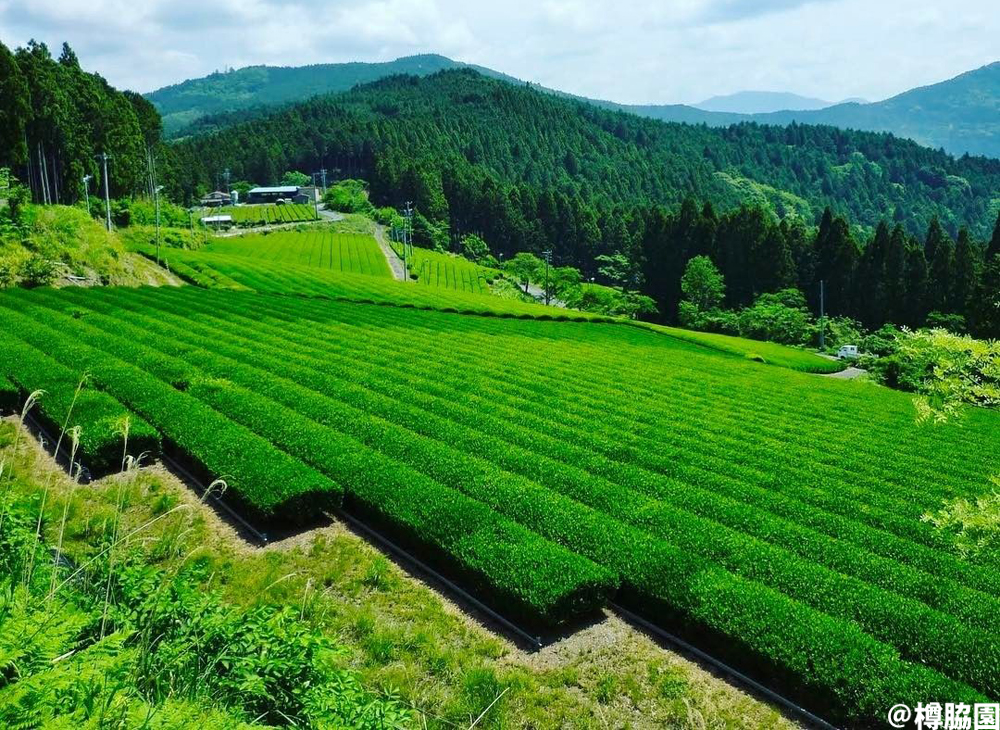
 ▲Taruwakien’s farm is located at the same height as the Tokyo Skytree in Asakusa, Tokyo.
▲Taruwakien’s farm is located at the same height as the Tokyo Skytree in Asakusa, Tokyo.
From around 15 years ago, I have been travelling around Japan selling tea to customers face to face. Staying here all the time really limits the broadness of ideas available to me, so I really value actively communicating with my customers.
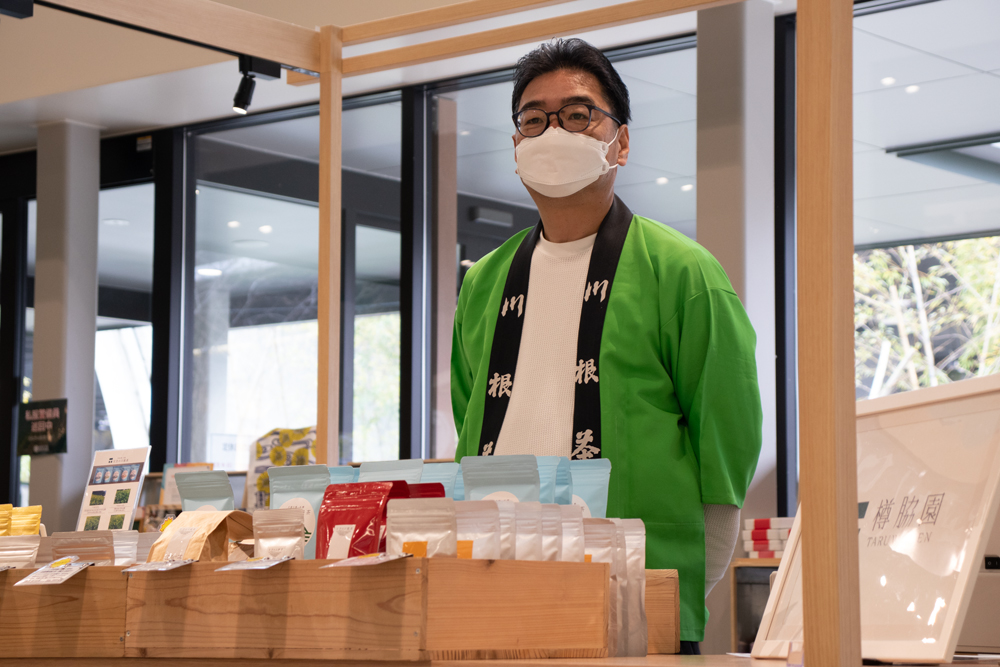 ▲Taruwakien at his booth in Kadode Ooigawa
▲Taruwakien at his booth in Kadode Ooigawa
Having returned to Kawane, I see at this place anew, I have realized what an enchanting and precious place it is; even after more than 10 years, there has been little change except in the height of the trees. There aren’t many wild natural environments like it.
Kawane’s population is declining due to the high age average of its resdents, and if this trend continues, there may be no one left. Accompanying this, the neglect of man-made forests may have a negative impact on the ecosystem and natural environment.
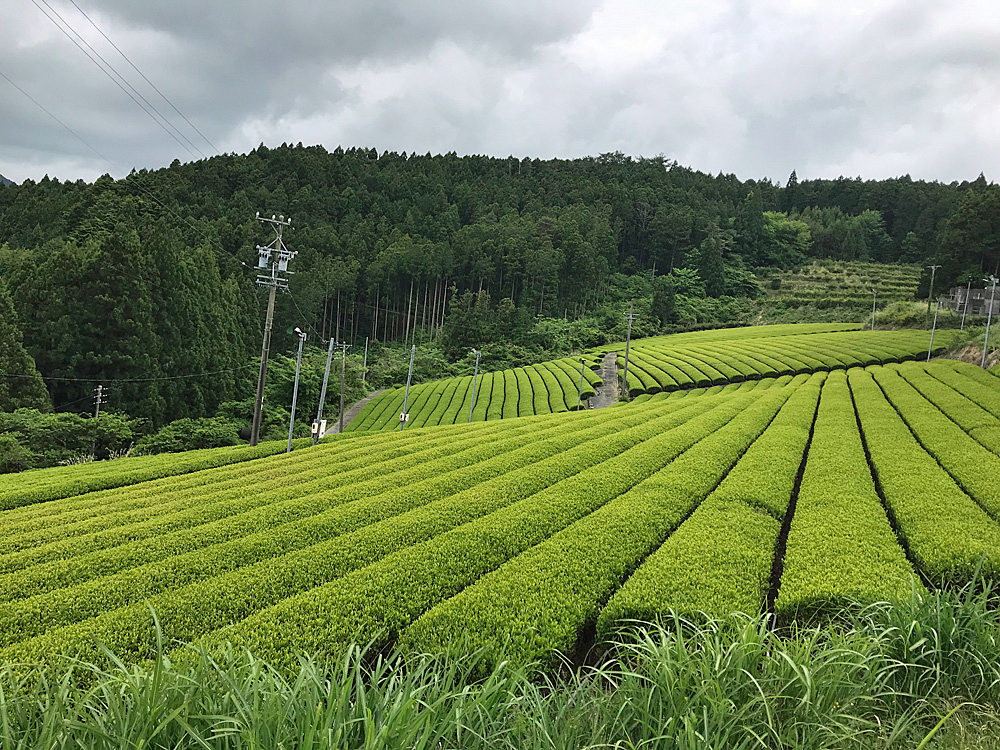
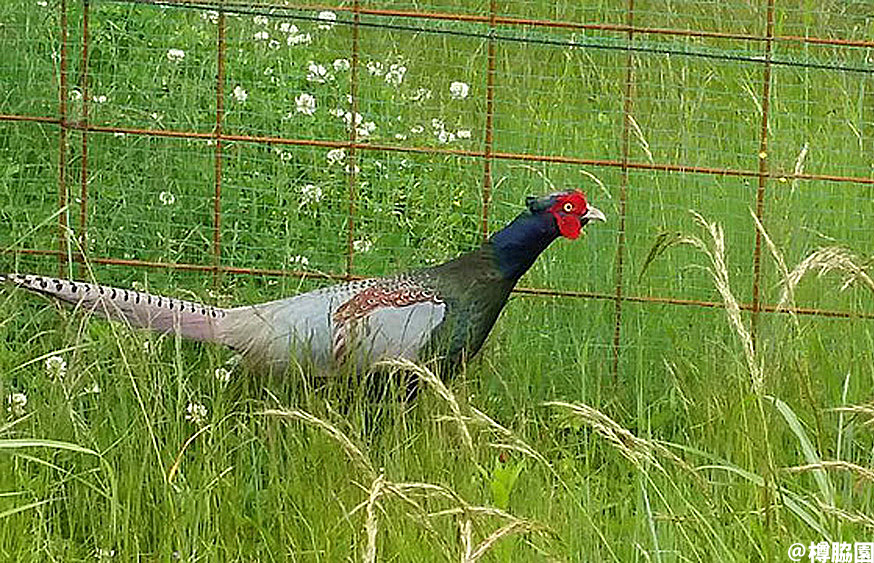 ▲The organisms that colour this environment are so beautiful.
▲The organisms that colour this environment are so beautiful.
We do not want this precious place to be neglected and fall into disrepair. We want to protect it at all costs. Beautiful mountains need to be preserved to keep the water clean, which in turn protects the oceans. We believe that producing organically grown tea and our efforts in circular agriculture are playing a part in the protection of nature.
(*Circular agriculture refers to an agricultural system that recycles resources by utilizing materials that would normally be discarded from households, livestock breeding, and industry as fertilizer. It is expected to function as a sustainable agricultural system with a small environmental impact by rotating agriculture within the scope of its local ecosystem, with human beings included. To learn more about circular agriculture, please refer to the article “Daichi no Chanoma“).
–Taruwakien’s tea production is a great way to conserve nature in this area.
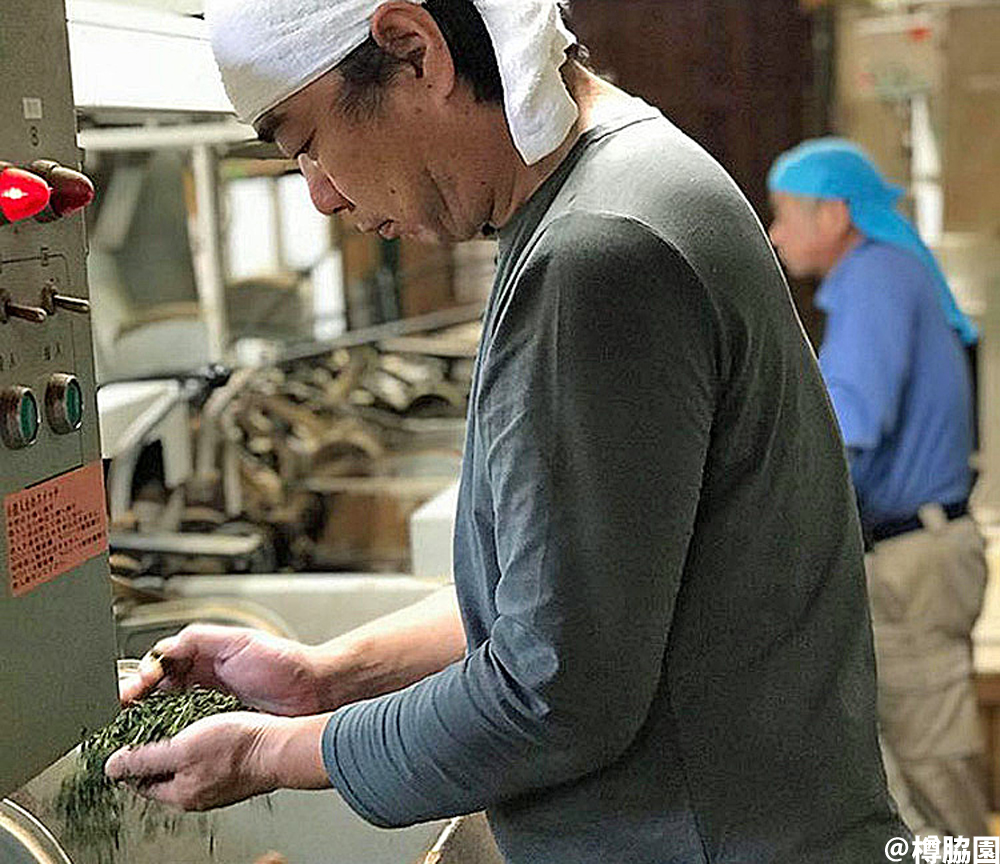
Giving organic tea grown in mountainous regions a fair evaluation
–I’ve heard that (in 2022) of Japan’s total tea production, only 2% of it is organic. Isn’t it difficult growing organic tea in such a mountainous region?
In response to the increase in exports of tea abroad, the demand for organic tea is rising. In Kagoshima, and other tea producing regions, farms earning organic certifications are increasing year by year.
We also export tea, but mainly to private individuals. Because of our location, we are not suited to mass production and mass sales, so we are not always able to deal with corporate transactions that require large volumes on demand.
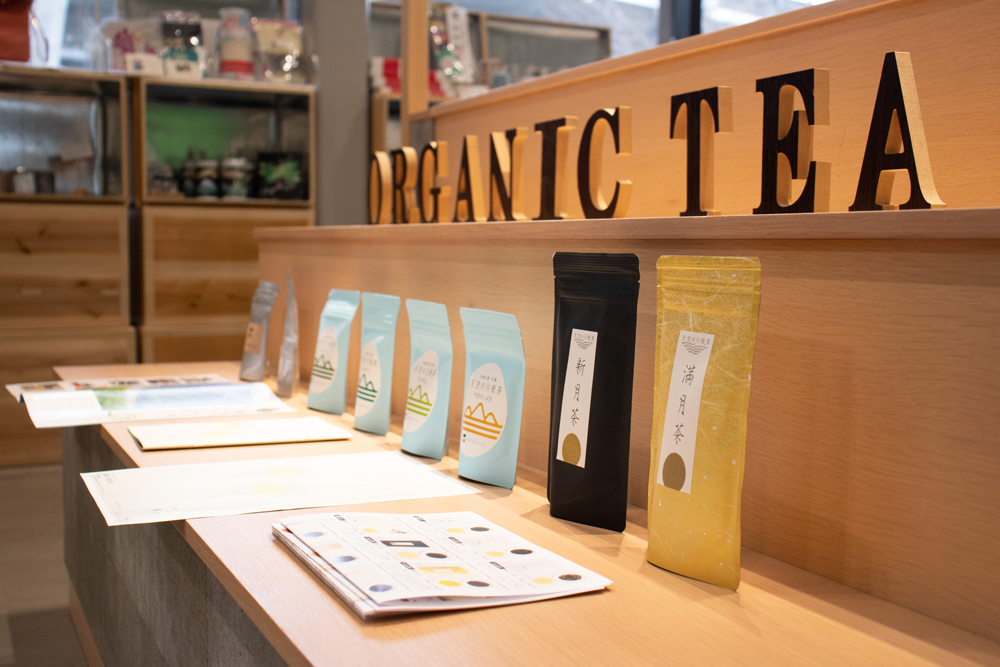
There is one thing that bothers me about the production of mountain tea. That is that the harvest season is later on high elevation mountain sides than it is in the plains. In the Japanese market, the earlier the harvest is, the more expensive it tends to be, as it is understood to be “first-picked of the harvest” or “in season”.
This long-established “first-come, first-served” value system is a serious disadvantage for farmers in mountainous areas.
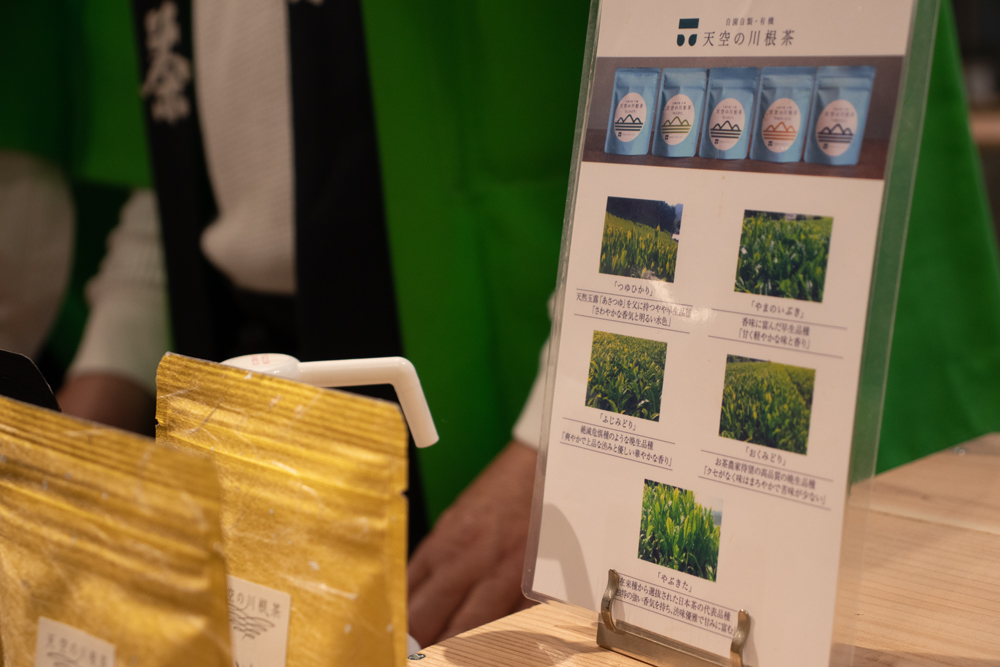
For these reasons, I believe that in addition to a “standard of good tea within the tea industry,” we must also give thought to a “standard of good tea that addresses customer satisfaction.” In other words, we must see things from the standpoint of our customers and sincerely respond to their wishes.
Why do people drink tea? The question I ask when designing new products
–So you want to maintain that “standard of good tea that addresses customer satisfaction” is separate from “standard of good tea within the tea industry.”
When we think about why customers drink tea in the first place, the answers are often “to take a break,” “to relax,” and “for health.” While it is important to focus on making delicious tea, I believe it is also necessary to develop a diversity of products in order to sustain ourselves as a tea business.

This is why we have developed essential oils from organically grown yuzu. In today’s busy society, there is a need for such products, and we are sometimes asked to open stalls at aromatic food events held in Tokyo and other cities.
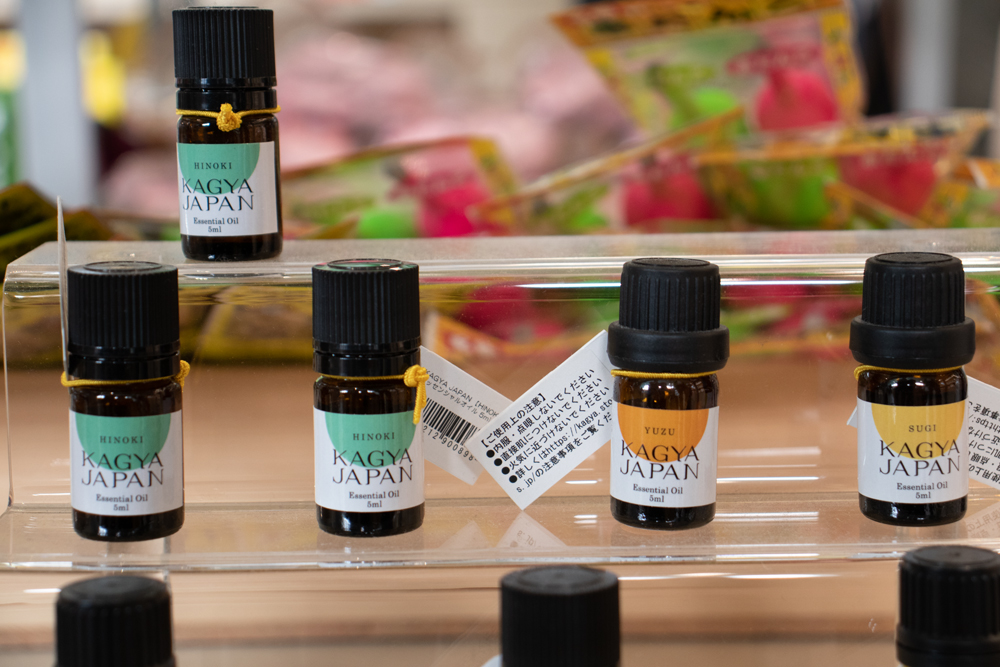
We are considering eventually changing the black-colored bottles of essential oils to clear, transparent bottles with UV protection. It goes without saying that the contents of the products are important, but we believe that attractive appearances will also attract more people to our products.
–You feel it is important to put time and effort into packaging?
We believe that package design is an important element that complements the appeal of a product and at the same time enhances the attractiveness and value of the product itself. In fact, when purchasing a product, consumers often first look at its packaging to determine its image and value.

We hire a professional designer to design our packaging, and has a professional photographer take the photos for our e-commerce site. However, we do not focus only on the appearance of the package. It is important to convey the essential value of the product, not just its appearance.
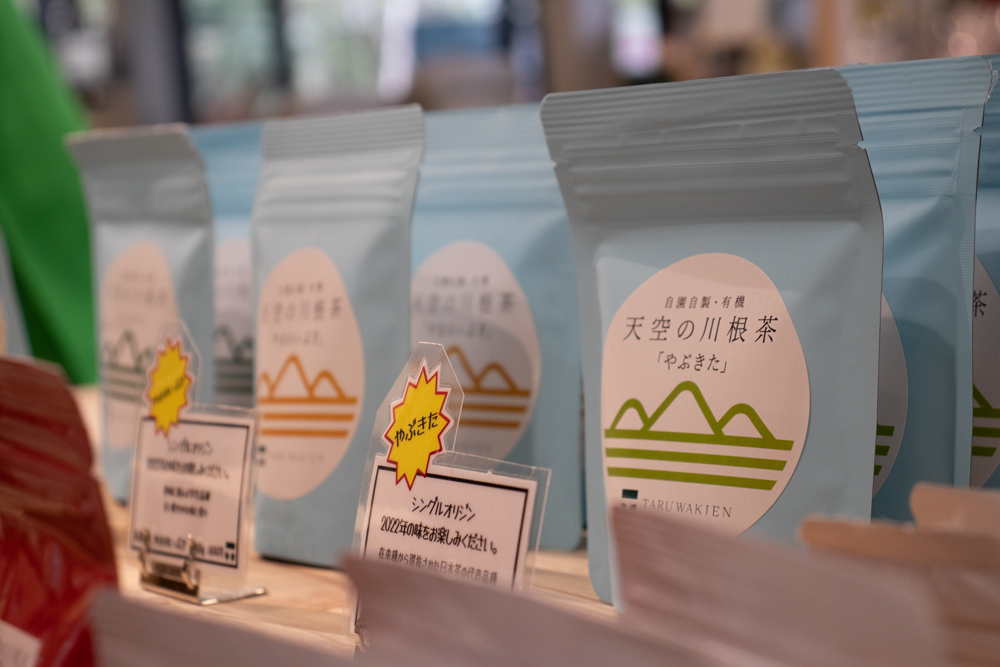 ▲The first thing customers see is the packaging. It’s the face of Taruwakien.
▲The first thing customers see is the packaging. It’s the face of Taruwakien.
Communicating our value and products through events with our fans
Due to our location, Taruwakien is unsuited to mass production and mass sales. Instead, we focus our efforts on making choice teas that delight our customers and on cherishing our fans who support us.
Taruwakien hosts tea picking events throughout the year. Many people interested in tea attend, with the “2019 Organic Kawane Tea Festival” attracting about 80 people.
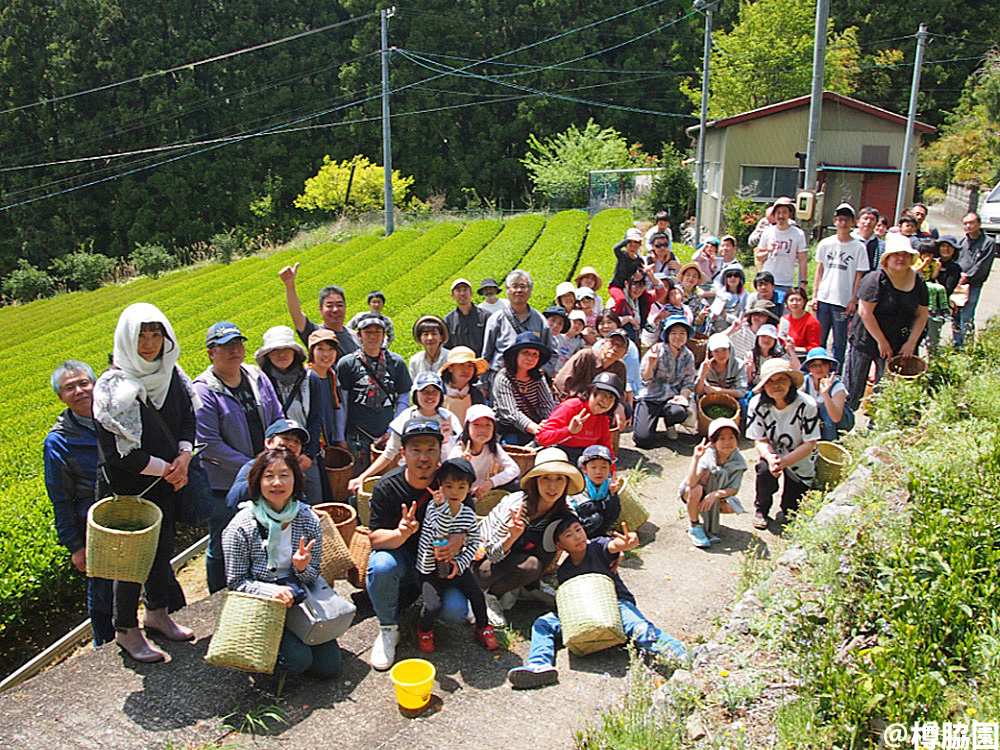
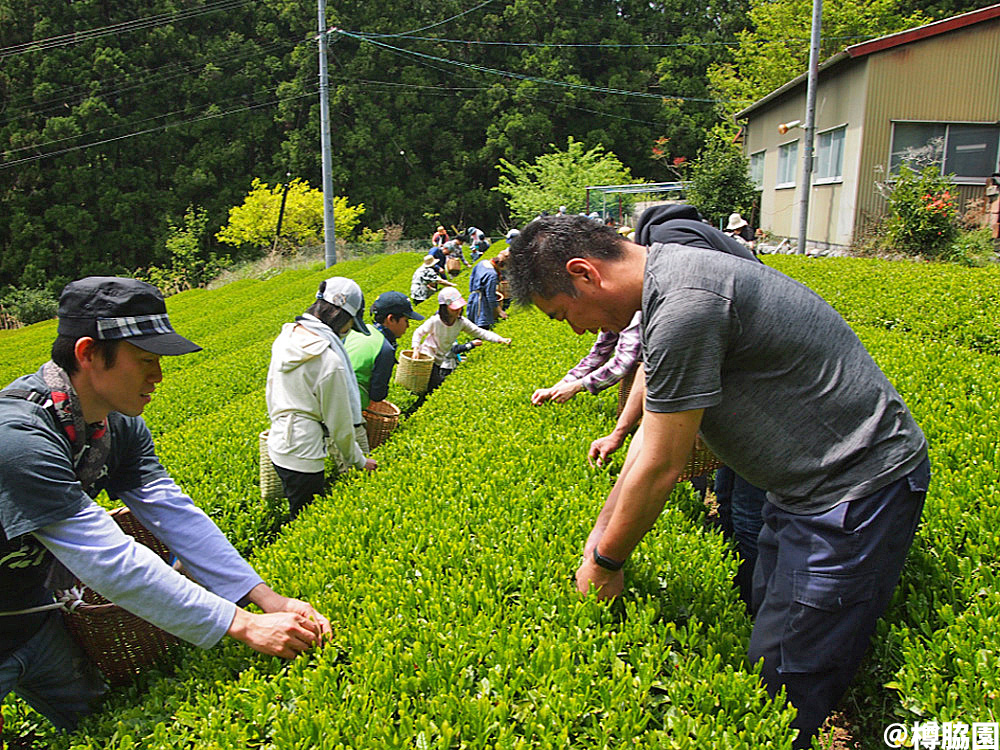
–80 people came all the way here?
Yes. During the Organic Kawane Tea Festival, we had an organic buffet, market and tea picking workshops which everyone enjoyed thoroughly. Most of the people who came to our tea picking workshop are still in touch with us now.
–So I see you are engaged in production whilst promoting and explaining the value of good tea to people at the same time.
We may not be able to compete by bringing a “first of the season” tea to the market, but it would be great if we could have people recognise our tea as a “seasonal product.”
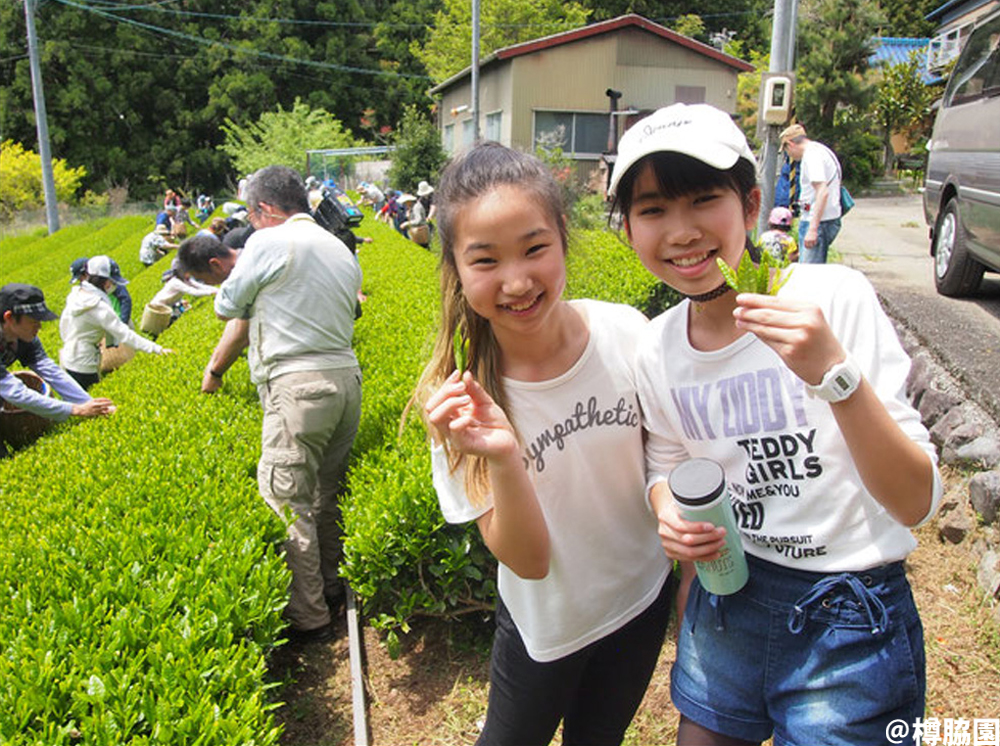
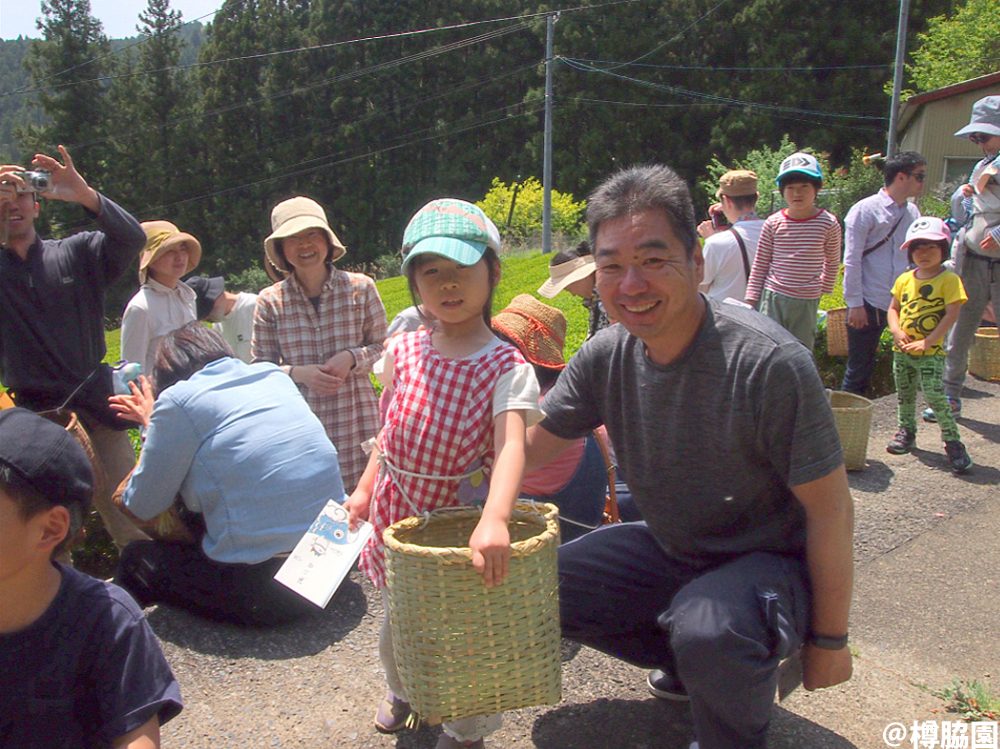
Related articles : The Wisdom of Forefathers Behind Tsuchiya Nouen’s 600m-high Tea Cultivation【Kawane Tea, Shizuoka Prefecture】
Recommended articles : Shizuka Nouen envisions a new era of luxury tea【Kawane Tea, Shizuoka Prefecture】
information of taruwakien
| Address | Never visit without a prior appointment. |
| Website | https://taruwaki-en.jimdo.com/ |
| Phone number | 81 90-2130-8532
(Japanese only) (Please do not suddenly visit tea farms without an appointment in advance, as it troubles farmers.) |
| E-money and credit cards | Cash only |
| Open | Contact Taruwakien |
| Closed | Irregular holidays |
| Parking lot | Available |
| Access |
| Writer | Norikazu Iwamoto |
| Career | Ochatimes chief editer. Meeting with Vice Governor of Shizuoka prefecture. Judge of Shizuoka 100 tea’s award in 2021~24. Ocha Times link introduced at website of World O-CHA(Tea) Festival 2022, Tea Science Center, The City of Green Tea Shizuoka, Ministry of Agriculture, Forestry and Fisheries. |
| English translator | Calfo Joshua |
| Career | Born and raised in England, living in Japan since 2016. Studying arboriculture in Shizuoka Prefecture whilst operating his landscape business Calfo Forestry. Appreciating the nature of Japan and the culture that places such importance in it. |


 Go to Japanese page
Go to Japanese page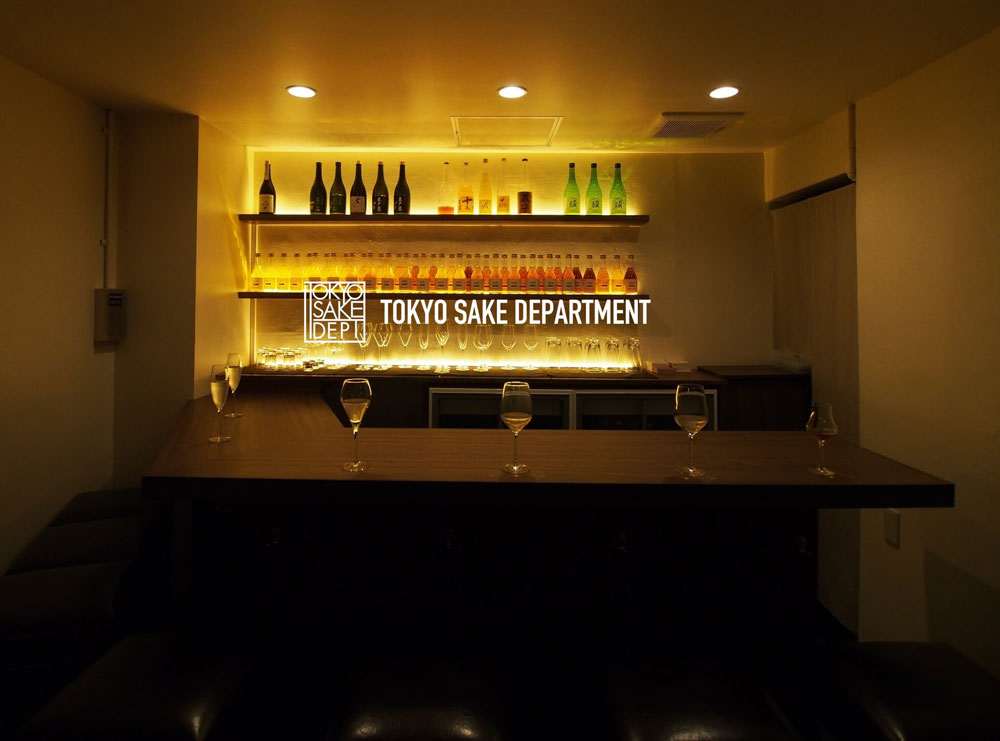
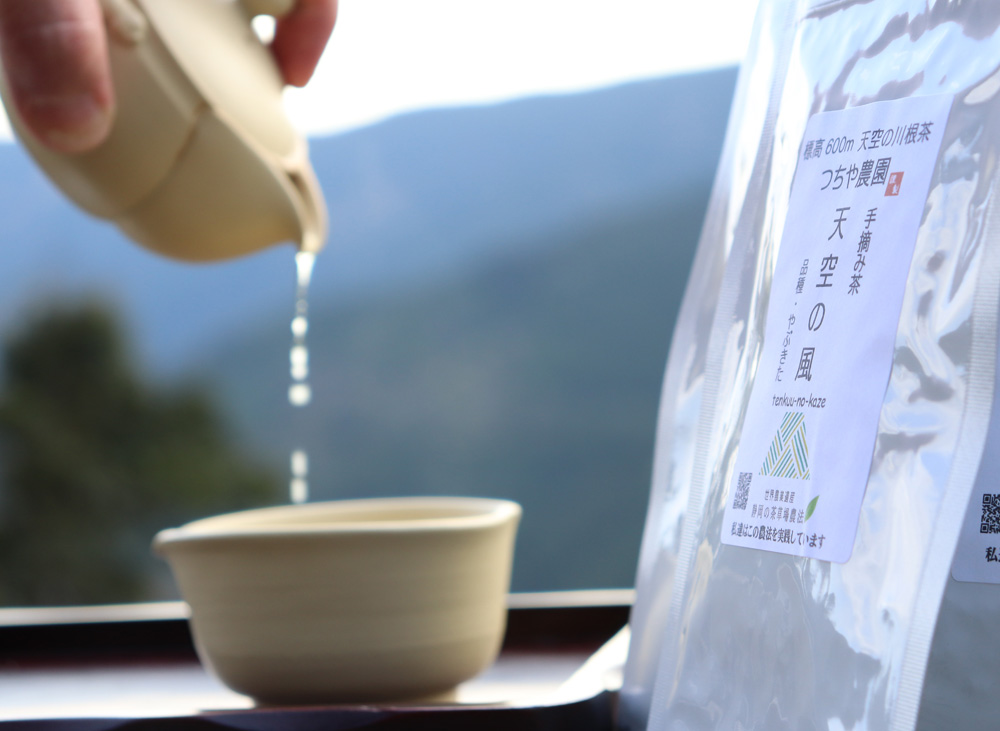
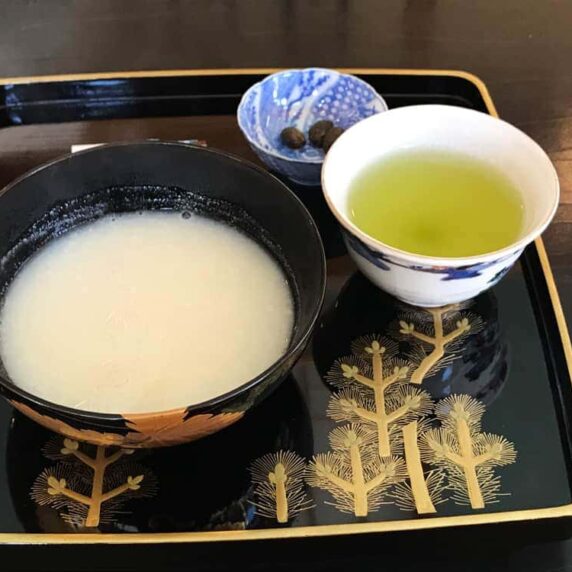
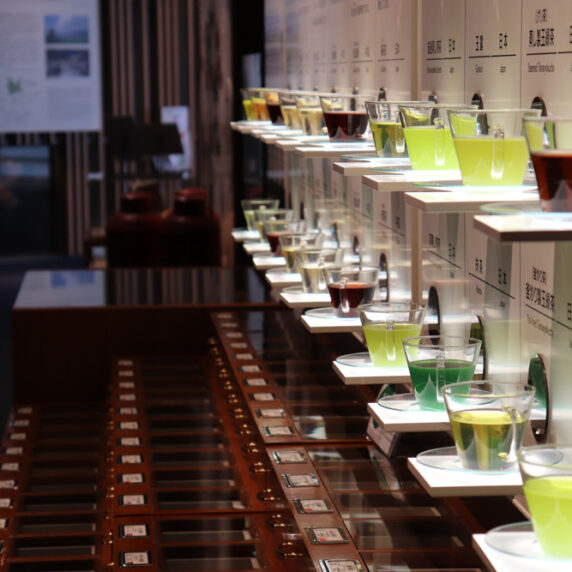
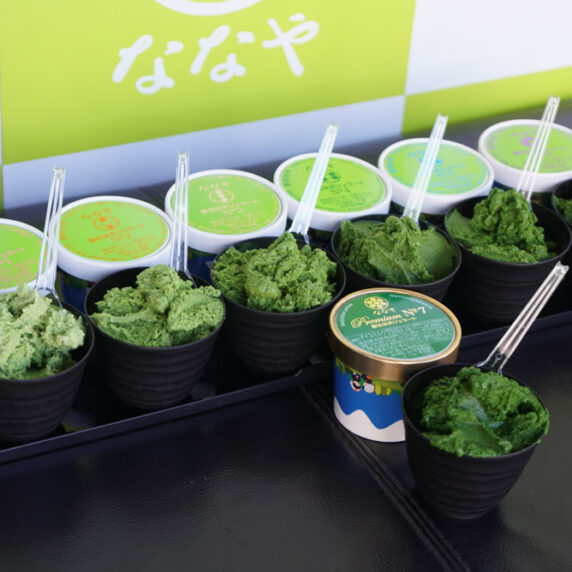




 on the red bar to close the slide.
on the red bar to close the slide. to see the
distance between the current location to the Chaya.
to see the
distance between the current location to the Chaya.